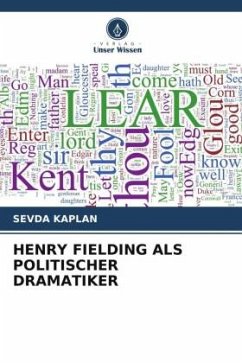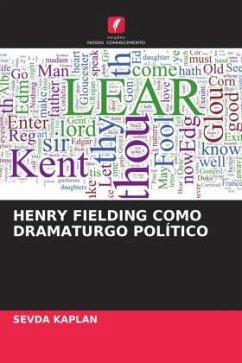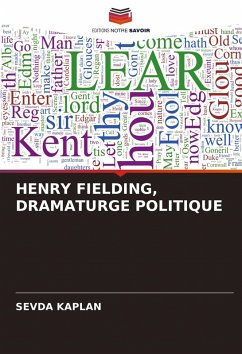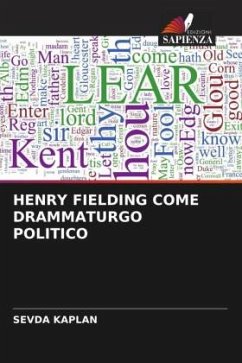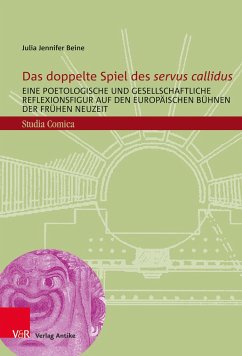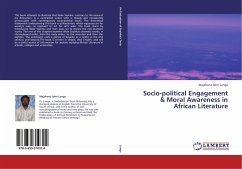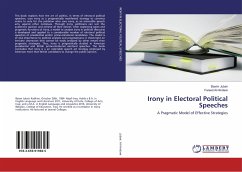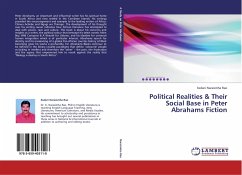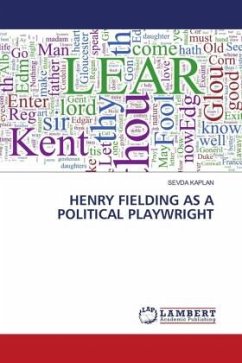
HENRY FIELDING AS A POLITICAL PLAYWRIGHT
Versandkostenfrei!
Versandfertig in 6-10 Tagen
29,99 €
inkl. MwSt.

PAYBACK Punkte
15 °P sammeln!
This book examines the political playwriting of Henry Fielding, who began his writing career by writing plays for stage, yet today generally known as a novelist. Fielding's political career the years between 1707-1754 under the light of political and social events casting their shadow on theatres with the imposition of the Licensing Act of 1737 is discussed in this work. Fielding's three important political plays Rape Upon Rape, The Modern Husband, and The Tragedy of Tragedies: or, the Life and Death of Tom Thumb the Great are analyzed from the political and social perspective. This book revea...
This book examines the political playwriting of Henry Fielding, who began his writing career by writing plays for stage, yet today generally known as a novelist. Fielding's political career the years between 1707-1754 under the light of political and social events casting their shadow on theatres with the imposition of the Licensing Act of 1737 is discussed in this work. Fielding's three important political plays Rape Upon Rape, The Modern Husband, and The Tragedy of Tragedies: or, the Life and Death of Tom Thumb the Great are analyzed from the political and social perspective. This book reveals the moral, social, and political collapse in this environment based on the corruption of the Royal family in that period by examining political, satirical plays having important messages. Though Fielding is accepted as a novelist, in his political plays, Fielding's political playwriting rather than his identity as a novelist is taken into consideration because he, in his political plays, handled electoral abusiveness, the unethical behaviours of state officers who mock with the society's values and do not believe in the existence of political honesty, and the corrupted sides of authorities.





